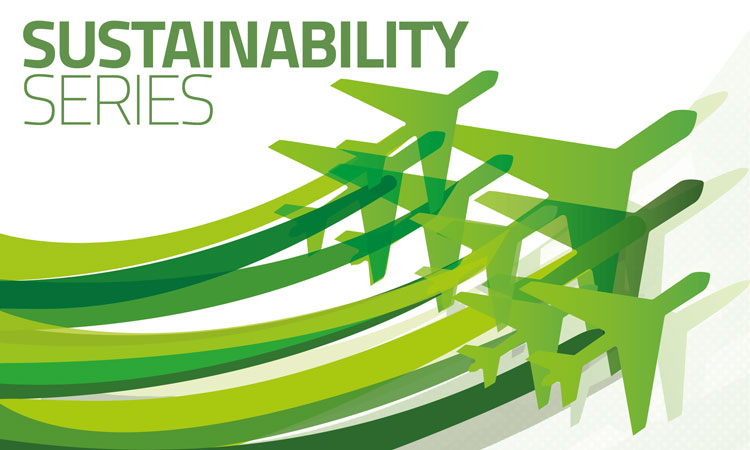Sustainability Series: Denver’s green passenger experience
- Like
- Digg
- Del
- Tumblr
- VKontakte
- Buffer
- Love This
- Odnoklassniki
- Meneame
- Blogger
- Amazon
- Yahoo Mail
- Gmail
- AOL
- Newsvine
- HackerNews
- Evernote
- MySpace
- Mail.ru
- Viadeo
- Line
- Comments
- Yummly
- SMS
- Viber
- Telegram
- Subscribe
- Skype
- Facebook Messenger
- Kakao
- LiveJournal
- Yammer
- Edgar
- Fintel
- Mix
- Instapaper
- Copy Link
Posted: 10 May 2019 | Denver International Airport, International Airport Review | No comments yet
In the latest instalment of our Sustainability Series we speak to Denver International Airport to see how they are making the passenger experience as green as can be.

How are you making the passenger experience greener?
Being environmentally friendly is a core value at Denver International Airport (DEN), and many of our passengers share that value as well. We offer several amenities that are environmentally friendly, sustainable business practices and major conveniences for our passengers. Our electric vehicle charging stations, for example, provide travellers with a place to charge their vehicle during their trip. On top of that convenience factor, it also reduces the amount of greenhouse gases emitted from a traditional gasoline-powered vehicle. Furthermore, travellers can elect to not drive at all by taking the new University of Colorado A line, which brings passengers directly to the airport terminal.
Our new liquid collection sites, as another example, benefit our passengers in that they can empty liquids right in the TSA queue and keep the bottles to be reused post-security. Our water-filling stations are located throughout the concourses so that passengers can refill their bottles and stay hydrated on their flight.
Other aspects of the passenger experience are designed “green”- from the buildings themselves (four have been LEED certified) to the lighting (over 2,000 LEDs have been installed).
Why is it important to make the passenger experience more environmentally friendly?
More than 64 million passengers travel through the airport each year and that number continues to grow. Creating a sustainable operation at this scale can have a huge impact- whether it’s reducing the amount of rubbish we send to the landfill, generating energy through our solar farms, or collecting an average of 70 per cent of our deicing fluid. These practices positively impact our bottom line but also the environment in which we live, work, play and travel.
How does the facility-wide Environmental Management System help to keep DEN green?
We’re very proud of the fact that DEN was the first international airport in the U.S. to design and implement an Environmental Management System (EMS). Since 2004, DEN has met the requirements of the international standard known as ISO 14001 and we have continued to be re-certified every year since. Our EMS broadly identifies, prioritises and manages the operational aspects that could potentially impact the environment. In addition, the ISO 14001 standards require that the airport sets performance goals and targets aimed at preventing pollution, minimising the amount of waste we generate, and overall reducing our carbon footprint. We involve stakeholders across the airport in reaching these goals, which helps create a culture that strives to operate in a sustainable way.
How have you focused on reducing passenger waste?
We have a number of programmes aimed at diverting waste from landfill. The airport has offered “single stream” recycling for many years; and our compost programme has been in operation since 2010. Our concierge glass recycling, in partnership with a vendor called Clear Intentions, allowed us to recycle 142 tonnes of glass in 2018. Our abandoned luggage programme collects baggage that has been damaged, lost or abandoned by our passengers and donates it to a local homeless shelter. Even toilet paper at DEN is re-purposed – when janitorial staff replenishes toilet paper in the restrooms, the leftover rolls of paper are collected and donated to the Denver Rescue Mission.
Tell us a bit about your food donation programme
Our renowned food donation programme is another creative way that we reduce the materials that are sent to the landfill while benefiting our local community. DEN has a variety of dining options, and many concessions offer “grab and go” meals and snacks for those travellers that are short on time. These prepared foods have a limited shelf life, but in most cases unsold packaged foods are still fresh and usable. In other cases, restaurants or flight kitchens have excess ingredients or products that are being rotated out of their menu offerings. In either case, food is collected in coolers throughout the concourses and once a week is picked up by local non-profits. The programme officially launched in 2016 and has been a tremendous success – in 2018, DEN donated 177,836 lbs. of food. This equates to a meal for 148,197 people.
Biography
Katie Zarachowicz, Sustainability Coordinator at Denver International Airport.
Related topics
Sustainability, Sustainable development, Terminal operations
Related airports
Related organisations
Transportation Security Administration (TSA), University of Colorado


















